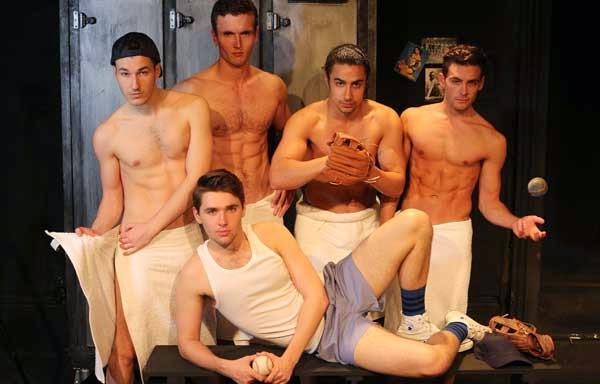Hangmen is Martin McDonagh's first new work on the London stage in a decade. But something is unsettling about this commentary on mob mentality and nostalgia. It’s grim world where the hero is the second best hangman in the country. And the smell of cigarette smoke and stale beer permeates the air. Well you don’t smell the beer but there is so much smoking on stage it wafts into the audience.
It is 1963 when the show opens. A prisoner is desperate to delay his execution by any means possible. But Harry Wade, the resourceful and efficient hangman, keeps things on track. The scene is hilarious right up to the moment when the trapdoor opens and you hear his neck snap.
Fast forward two years and Harry is running a pub in Oldham. Capital punishment has been abolished. A cub reporter from the local paper is chasing him for an interview. Still, he has his regulars at the pub. They are like his fans, clinging on to stories from the old days as if capital punishment was a sport.
But then something happens in the arrival of this young upstart from London arrives and starts asking questions. Is he another journalist or is his motive much darker, and more sinister?
As the second best hangman, David Morrissey presents as an imposing figure at first until the story unfolds and his life begins to unravel. He seems to be caught between portraying a buffoon and a hero.
Coming off better are the two women in the piece. Sally Rogers as his long-suffering wife delivers a understated performance. Playing their daughter,
Bronwyn James is a delight as the optimistic, yet moody, teenager. She captures all the contradictions of being young in a simple stare or pout.
Whether you find it funny might depend on how much you remember the period. The grim locations and cast of mostly male characters become less and less appealing as the show progresses into black comedy and then horror. dark humour. McDonagh’s dialogue is sharp and other have compared it to Pinter and Orton. His skill as a writer keeps you guessing about what is to happen next. But it proves to be all a bit of a tease.
Maybe it is a story where the journey is more important than the conclusion. Whatever the aim of the piece, it makes for a challenging night of theatre. Just as challenging (particularly if you are sitting in the stalls), is the fussy set which opens out and rises up at various points for no real reason. Anyone sitting too close to the front is likely to suffer from a stiff neck.
The show had a a sell out run at the Royal Court Theatre and is at the West End for a limited season through to March.
First impressions with
@johnnyfoxlondon follow
Photos: Production images by Helen Maybanks





